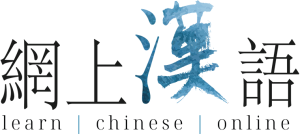Grammar 10
Learn Chinese: grammar 10
The sentence structure for emphasizing
In Chinese, to insist on an element in the sentence, we place the verb 是 shì before the element on which we want to insist and we place 的 de at the end of the sentence.
Have a look at the following examples:
我坐飞机去中国。
I go to China by plane.
我是坐飞机去中国的。
It is by plane that I go to China.
我是明年七月坐飞机去中国的。
It is in July next year that I go to China by plane.
我明年七月是坐飞机去中国的。
It is by plane that I go to China in July next year.
我明年七月坐飞机是去中国的。
It is in China that I go in July next year by plane.
这是在火车站买的。
It is at the station that I bought it.
This is not very complicated, but it is a grammar point sanctioned at level 1 of the Chinese HSK certificate.
The verb-object
We have already talked about verbs-objects (separable verbs): verbs that cannot be used without an object.
"Sleeping" 睡觉 shuìjiào is a typical verb-object:
睡 shuì
(to sleep)
觉 jiào
(slumber)
Example:
睡一个好觉 shuì yí gè hǎojiào
to have a good sleep.
睡午觉 shuì wǔjiào
to take a nap.
"Eating" 吃饭 chīfàn is a verb-object, but it tends gradually to lose this status in spoken language: we can sometimes hear 吃 chī alone.
Examples with
吃饭 chīfàn :
我很喜欢吃饭。
I love eating.
我喜欢吃中国菜。
I like Chinese food. (Note that in Chinese we say "I like to eat ...")
太。。。了
In Chinese the word "too much" 太 tài is very often associated with the particule 了 le at the end of the sentence (but 了 le loses here any grammatical utility, it is a language usage) except in the negative sentences.
Example:
她做的菜太好吃了!
The dishes she makes are excellent!
太好了!
Great!
他不太喜欢坐飞机。
He does not like flying too much.
在。。。呢
In front of a verb, 在 zài indicates that the action is in progress:
我在做饭。
I'm cooking.
呢 ne at the end of the sentence has the same meaning but is more used in oral expression: 我做饭呢! I'm doing cooking!
How to distinguish the particule 呢 used to ask reciprocal questions (你呢?) and the particule 呢 that indicates that the action is in progress?
If 呢 is preceded by one word only, it means that it is used to ask reciprocal questions:
他呢?
And him ?
火车呢?
And the train?
If 呢 is preceded by a sentence, it indicates that the action is in progress:
他做什么呢?
What is he doing?
In fact, 在 zài and 呢 ne are most often used together:
他在睡觉呢。
He is sleeping.
我在学习呢。
Je suis en train d'étudier.
